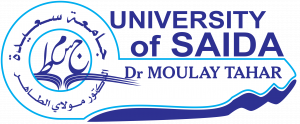Course Structure and Objectives
The Objectives of the Course
(a) Students will have an idea about twentieth century political, economic, and historical changes in Europe in general and in UK and USA in specific,
(b) They will examine the influence of the previously mentioned aspects on the ideological and philosophical arenas,
(c) They will finally indulge into the literary movement of the time Modernism, its characteristics, and different styles it beholds; and then will be introduced to Postmodernism,
(d) A discussion of different literary texts and styles will relate theory to practice at the end.
The Aims of the Course
(a) Students will be able to discuss twentieth century historical and philosophical effects on literature,
(b) By providing a sum of philosophical, social, and psychological concepts, students will improve critical thinking,
(c) Literary involvement in the texts and a personal reflection into everyday life will be the final target of these lectures.
Expectations
Students are expected to have knowledge of the WWI affects on European culture and the new ideological and philosophical trends. They are required to reflect upon the literary texts and trace the modernist aspects at the level of the form and content. Themes and styles of modernist literature will become the final aim of their learning journey. Through modernist, they will have the opportunity to make an introductory comparative study between the studied movement; modernism, and the upcoming one; postmodernism. At the end, they are expected to respond to this amount of knowledge by presenting essays (written or oral form), one TD exam, and one final exam paper.
Evaluation
Attendance: 05%
Participation: 10%
Home work: 10 %
TD exam: 25 %
Final Exam: 50%
Moral and Ethical Requirements
Respect is a shared aspect between teacher and student and among students,
No plagiarism is allowed,
Attendance is obligatory during TD sessions,
Deadline for essays and homework should be respected.
Time Provided for the Course
The academic year is divided into two semesters; each consists of 10-12 weeks including TD assessment exam. Two weeks after the end of each term will be for the final exams. The academic year consists of three holiday periods: autumn, spring, and summer. Other exceptional holidays may interfere with the program, for example working day (1st May), Independence Day (1st November), Aid day (Fitr and Adha) etc...
